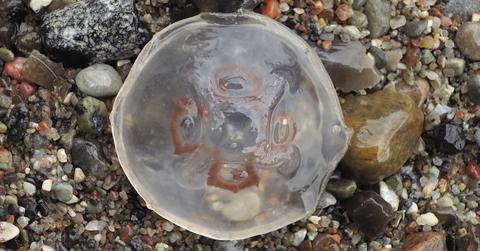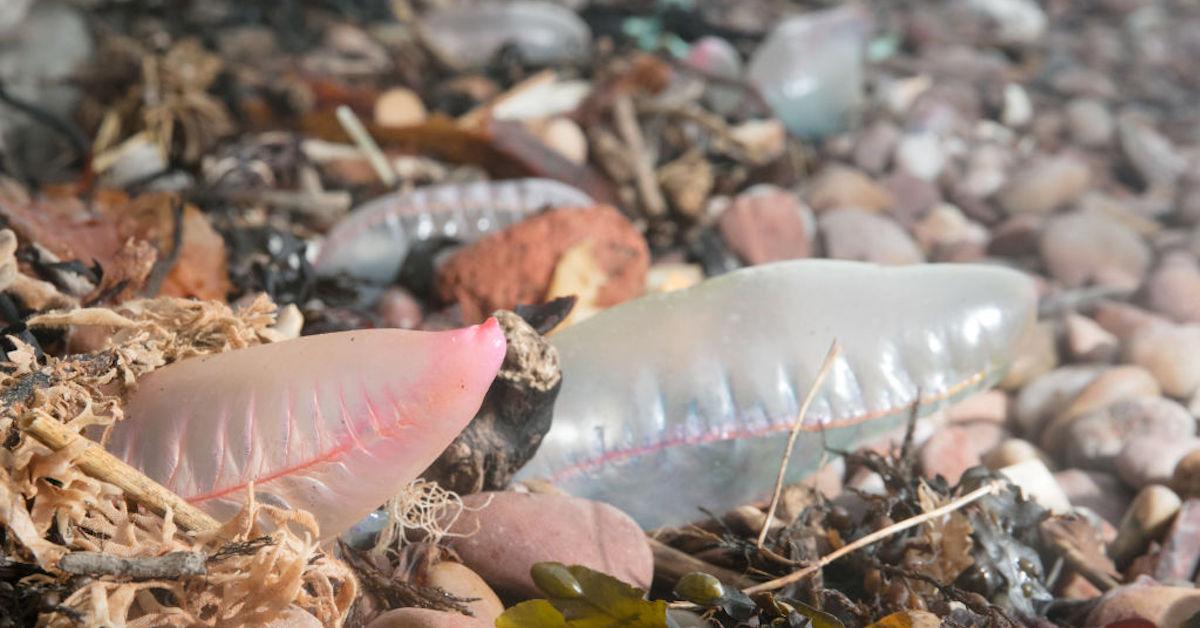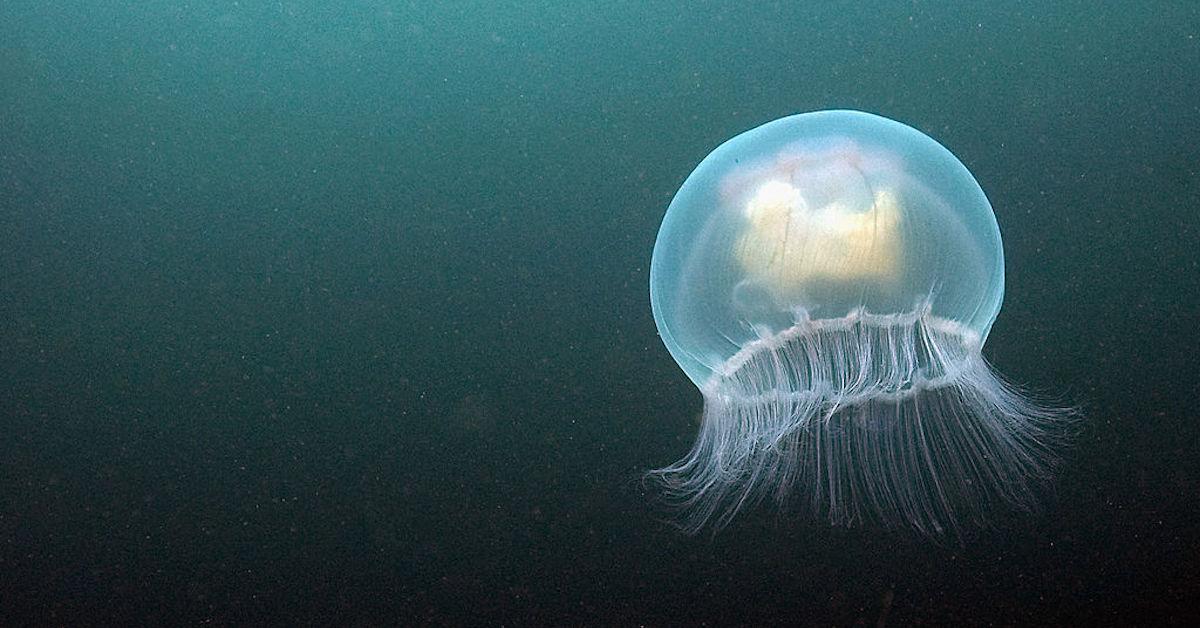Here's Why So Many Jellyfish Beach Themselves Every Summer
Published April 6 2021, 12:39 p.m. ET

It's a relatively common sight to see: the sun is shining, you're strolling along the beach, and suddenly, you notice large clumps of dead jellyfish littering the shoreline. Jellyfish beach themselves somewhat regularly, though seeing flocks of them, completely lifeless, is generally a shocking scene nonetheless. But, don't worry — it isn't a sign of an apocalypse.
Why do jellyfish beach themselves? Although it's an alarming phenomena, it's completely normal — here's why it happens yearly.

Here's why you see flocks of beached jellyfish every summer:
Jellyfish generally spend their days drifting through the ocean, letting themselves be carried wherever the wind takes them — and unfortunately, that sometimes ends in their demise. According to Live Science, the reason why you sometimes find beached jellyfish is because they float with a rigid "sail" that pokes out of the water. While this often helps them travel and snag food, it sometimes blows full colonies ashore.
Sadly, when this happens, the jellies die very quickly. According to The Swim Guide, jellyfish contain high amounts of water. So, when jellyfish wash up on the beach, they dry out and die incredibly quickly. They don't survive this way for very long at all, but take note: their tentacles can still sting, even after they've died. So, you'll want to avoid stepping on their corpses.
"Every year, on beaches around the world, colonies of sailor jellies become stranded by the thousands. There, they dry up and die, becoming a "crunchy carpet" of dehydrated corpses covering the sand," Julia Parrish, a University of Washington professor, said in a statement, as per Live Science.
Sadly, weather conditions are to blame for these widespread jellyfish destruction — there's nothing that we as humans — or planet Earth's beloved jellyfish can do to avoid this inevitable fate.

This differs from why whales beach themselves.
Jellyfish generally beach themselves on accident, due to storms, the current, or wind, but whales are a completely different story. Although sometimes whales beach themselves by mistake, by accidentally swimming into too-shallow water, they often do so because they are sick or very old, and can no longer swim. Sometimes it happens in pods, which results in several beached whales — this can be a seriously devastating sight to see.
Likewise, beached whales don't die instantaneously, like jellyfish do. It sometimes takes hours for a beached whale to die, which makes saving a beached whale possible. If you see a beached whale, it isn't recommended to touch or try pushing them back into water. You can, however, call local authorities to help, monitor the whale's well-being, and keep dogs, people, and other animals away from the animal, to ensure their safety.
With that in mind, you really can't do much when you see a beached jellyfish, partially due to the fact the animal is most likely already dead. We strongly suggest staying as far away as possible — due to the jellyfish's still-active stingers — and maybe opting to stay out of the water, in case there are any still being washed up.